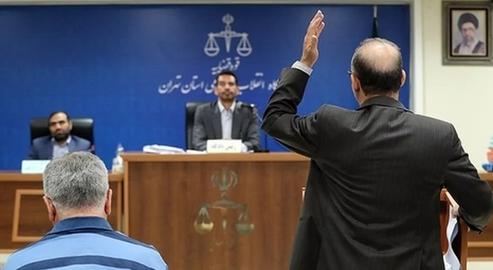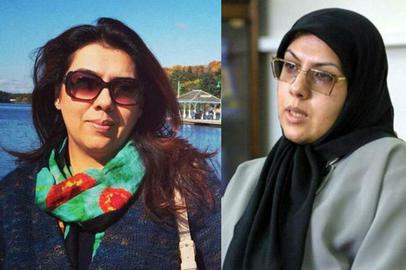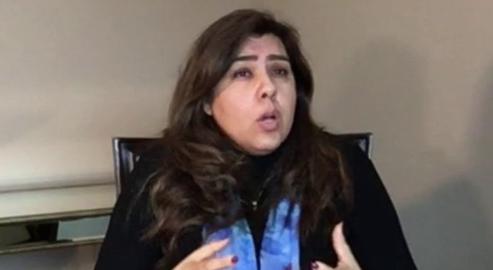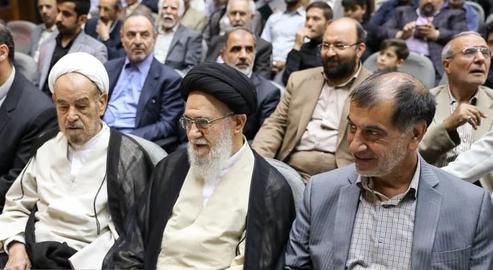The verdict in a massive corruption case involving the Iran Petrochemical Commercial Company (PCC) was announced on September 5, 2021. But nearly three years after proceedings first got under way, the details remained shrouded in mystery.
We were told at the time that 15 named defendants had been sentenced to a total of 180 years in prison, linked to the embezzlement of around €6.6bn. But curiously for Iran, none of them were in custody at the time the sentences were issued. Most were out on bail, and a handful had even managed to leave the country.
IranWire has now gained access to the 2,000-page judgment, issued by Judge Asadollah Masoudi-Magham in Branch 3 of the Special Corruption Court. The contents shed light on the sheer extent of mafiosi behavior, graft, cronyism and money laundering in Iran’s still-lucrative petrochemical industry – and on how far the 15 convicted men were aided and abetted by dozens of others, many in positions of power.
A long-observed pattern in Iranian grand corruption cases is that one or more of the defendants tends to mysteriously be out of the country by the time the trial gets under way. This allows them to be conveniently scapegoated in court while also being let off the hook. The same was true of the PCC case: not one of the defendants was in custody when the verdict was read out. Most were free on bail and others had left Iran, never to return. One of the latter was Marjan Sheikholeslami Aleagha, a rare female colluder in crime in Iran’s patriarchal order.
***
Marjan Sheikholeslami Aleagha, born in 1966, began her career in public life during the Khatami years, as a journalist for reformist newspapers. She married Majid Baghernejad, a deputy minister of culture and Islamic guidance, and after she married, Mohammad Beheshti Shirazi, head of the Cultural Heritage and Tourism Organization, appointed her as the chief of the state-owned Miras (“Heritage”) News Agency.
At the time of the PCC corruption from 2009 to 2103, Marjan Sheikholeslami was the CEO of two shell firms, Deniz Company and Hetra Tejarat Company. She was charged with “major sabotage of the economy” for taking some €7,065,529 ($8,710,384) in “commissions” from currency transfers involved in the sale of Iranian petrochemical products abroad. For this, she was sentenced last September to 20 years in prison. But she was not in Iran when the verdict was issued, and most recently has emigrated from Canada to the United States.
From a Joint Venture in ‘Paper’ to Embezzling Petrochemical Proceeds
Iran Investment Company, a parastatal conglomerate registered in 2006, is the parent company of PCC and Reza Hamzelou, the CEO of PCC at the time of the embezzlement. In the fourth hearing of the trial in April 2019, Hamzelou said he also became acquainted with Ms. Sheikholeslami through Iran Investment Company.
According to Hamzelou, Sheikholeslami and her husband started working with this company in 2007, with a general focus on cultural activities. Then in 2009 and 2010 respectively, he and Sheikholeslami launched a joint venture in “importing paper and printing”.
Page 72 of the first part of the verdict states that Deniz was registered in Istanbul, Turkey, in September 2010, initially as Deniz International Tourism LLP, and with initial capital of 750,000 Turkish liras. Reza Hamzelou and Marjan Sheikholeslami Aleagha each owned 50 percent of the shares. Hetra Tejarat was also registered in the same month in Iran with Hamzelou as chairman, Sheikhoeslami as deputy chair, and Hamzelou’s wife, Tahereh Dezhdoust, as a third member of the board.
Judge Masoudi-Magham determines in his verdict that Hamzelou, as CEO of the PCC, had signed an agreement with Sheikholeslami as the CEO of Deniz, on the basis of which Deniz would receive funds belonging to the PCC from its foreign clients and transfer them to Iran through Hetra Company – after deducting its own commission. In other words, Hamzelou had positioned entities he half-owned as PCC contractors, allowing PCC funds to flow into his and Sheikhoeslami’s personal accounts.
In the next phase, the judgment states, Hamzelou ordered the PCC’s representatives in China and other countries to deposit the proceeds from petrochemical products sold abroad into the account of Deniz Co in Turkey. The pretext, of course, was to bypass sanctions. According to documents in the case, there would have been little need to do this as transferring currency from China and the UAE to Iran was not especially difficult at that time.
However, some €750 million went on to pour into the bank account of Deniz in Turkey. Customers had paid the PCC and SPEC (the Petrochemical Industries Part, Equipment and Chemicals Engineering Company) €700m in Shanghai, and €50m was paid to Deniz via Halkbank in Turkey, which now faces charges in the US for helping Iran evade sanctions. Hamzelou and Sheikholeslami then used Hetra Tejarat, the company that they had registered in Iran, to deposit the money into the PCC’s account via the Iranian Central Bank – but in rials, at the much lower official price of Euros, pocketing the difference. In the end, that difference amounted to €750m.
Under Cover of Sanctions
Two PCC affiliates cited in the court documents confirm that the transfer of funds to Deniz in Turkey was exclusively meant to benefit the companies belonging to Hamzelou and Marjan Sheikholeslami. Seyed Alireza Hosseini, the director of PCC’s office in China, remarks: “The currency was transferred to the Deniz account because Reza Hamzelou had ordered it – even though, because of the Euronest and Intermet accounts in Dubai [believed to be state-owned shell entitiesd], there was no need. This activity took place purely because the then-CEO insisted on it.”
Hosseini goes on to say that in fact, no Iranian shell firms would have been necessary at all. “The accounts belonging to Deniz, Euronest and Intermet companies were being used as cover for the PCC, but the Bank of Kunlun had created a channel so it could transfer funds in foreign currency directly to Iran, and had transferred around €508 million through this channel.”
The other notable testimony came from a Ms. Dari, director of the PCC’s Dubai office: “The Euronest account in Dubai received all funds in foreign currency from all [PCC] customers, whether in China or in Dubai, and these funds were transferred to Iran from accounts belonging to the PCC in Dubai. What’s more, at the time, PCC accounts in China were able to transfer funds in foreign currency to Iran. I don’t know what Deniz’s role in Turkey was at that juncture, or why Chinese customers transferred currency to Deniz.”
Subbing the IRGC
The next step taken by Sheikhoeslami and Hamzelou, according to the vverdict, was to do business with petrochemical firms linked to the Islamic Revolutionary Guard Corps, using the funds they had stashed in Turkey.
The IRGC’s Khatam-al-Anbiya Construction Headquarters could not take part in foreign trade so the pair went into business with Petro Karan Shafagh Kish Co (PKSK) via Ali Ashrafi Riahi, the son-in-law of Mohammad Reza Nematzadeh, President Rouhani’s Minister of Industry from 2013 to 2017.
The IRGC-affiliated PKSK needed foreign currency in order to import equipment. Sheikhoeslami transferred about €100 million from Deniz to bank accounts specified by PKSK. She and Hamzelou used the rest of the money for personal investments.
The pair also received commissions of three to four percent on funds they transferred on behalf of IRGC’s petrochemical firms to their foreign contractors, via Hetra Tejarat Co. Hetra Tejarat received around €258 million inside Iran this way, while €90 million was deposited into the bank account of Deniz Co from foreign accounts associated with the IRGC’s petrochemical concerns.
From Mohsen Rice to Midas Gold
These lucrative deals with IRGC’s petrochemical companies were just part of the business that Marjan Sheikholeslami and Reza Hamzelou conducted using the hundreds of millions of euros they had creamed off from selling Iranian products abroad.
The pair transferred a considerable portion of the proceeds, around €240 million, into companies run by the entrepreneur Mohammad Sarafan. The Sarafan family’s footsteps were discerned in the Sarmayeh Bank corruption scandal as well.
According to documents in the case, the funds Sheikhoeslami and Hamzelou accumulated in Turkey were invested in various Sarafan Group brands, including Mohsen Rice, Iranians’ Yekta Negin (“Iranians’ Unique Gemstone”) and Midas Kish. The latter manufactures equipment, tools and machinery used in the gold and jewelry industry.
Documents cited in the verdict also list some of the incidences when Sheikholeslami and Hamzelou dipped into funds from the Deniz account for personal use. They include:
· Equipment: €3.8m
· Personal withdrawal by Hamzelou: €2.7
· Purchase of a building in Canada by Sheikholeslami: Can$2.1 million
· Purchase of a building in Canada by Sheikholeslami: Can$700,000
· Payments to Alfam Radiator Manufacturing Co, owned by Saeed Hamzelou, the son of Reza Hamzelou: 35 billion rials (US$3.2m)
· Payments to Armen Meat Products, owned by Hamzelou’s brother: 30 billion rials (US$2.7m)
· Purchase of an apartment in Zafaraniyeh, a luxury neighborhood in Greater Tehran, by Sheikholeslami: 9bn rials (US$833,000)
· Various withdrawals in rials by Reza Hamzelou: 7.8m rials ($722)
· Purchase of an office for Hetra Tejarat Co: 30bn rials ($2.7m)
“Serene” Money Laundering
Buried within the logged activities of the Sheikholeslami-Hamzelou partnership are payments to a company by the name of Aram (“Serene”), which purported to be working in the field of solar energy. Some evidence in the case suggested Aram Co was rather used for money laundering by disguising Sheikholeslami’s big purchases.
Ali Ashraf Riahi, who was the go-between the co-directors of Deniz and the IRGC, said he was supposed to receive shares in both Deniz and Hetra Tejarat. But instead, he said, he was given 15 percent of the shares of Aram Co, and was accordingly paid $2.7m by Sheikhoeslami in 2012. There is no evidence that Aram Co generated such a sum – amounting to billions of tomans – through its own activities.
Defense and Sarcasm
Marjan Sheikholeslami has publicly denied any wrongdoing in relation to the PCC. “Pursuant to the defense presented by Mr. Hamzelou that has been reported by the news agencies, I strongly reject the charge of sabotaging the economy,” she wrote in a statement while the trial was in progress. “I reject the charge of making a profit from the difference in currency prices and adamantly ask that a financial expert investigate the evidence. I made no profit from the difference in currency prices or from delaying the payments.”
The decision to cite Hamzelou’s defense was an interesting one. In it, he had defended Sheikholeslami as well: “Sheikholeslami was a well-known figure and even passed the scrutiny of the Guardian Council. She worked as an expert with the Iranian parliament and its Cultural Committee. She believed in the regime and in hijab, and... made no profit from activities related to the PCC, only receiving a salary of about $2,000 from Deniz Co. Petrochemicals was just one aspect of Deniz’s activities and she was active in print industry as well.”
In her statement sent from Canada, Sheikholeslami tried to present herself in a manner that would appeal to the Islamic Republic: “Since I have resided outside the country with my family I have not posted a single note and I have not given any interviews. Therefore, I respectfully say this to the media trying to associate me to a group or a faction, depending on their own ideology and political affiliations: I do not belong to any group, be it the opposition, the principalists, the reformists, the monarchists, those who want to overthrow [the regime], or anything else.”
After the court sentenced Sheikholeslami to 20 years in prison and 70 lashes, her tone changed: “Isn’t it time to put King Corona on trial and sentence him to 20 years in prison and 74 lashes?”, she wrote in a tweet. “But there can be no doubt that he’d be sentenced first to 20 months, then be acquitted after six!”
Related coverage:
Iran's Great Petrochemical Corruption Scandal, Part V: The Irancell Hustle
Iran's Great Petrochemical Corruption Scandal, Part I: The Ones That Got Away
Iran's Great Petrochemical Corruption Scandal, Part II: Buying Off the Intelligence Ministry
Iran's Great Petrochemical Corruption Scandal, Part III: The General (Non-)Inspection Office
Iran's Great Petrochemical Corruption Scandal, Part IV: Sanctions-Dodging and the IRGC
Who's the Mysterious Survivor of Two Grand Corruption Cases in Iran?
From Luxury Villas to Defrauded Banks: The Mother of All Corruption Cases Gets Under Way in Iran
Government Report Reveals More Corrupt Privatization Practices in Iran
Corrupt to the Core: The Long List of Corrupt Iranian Officials
Sanctions on Iran’s Petrochemical Products: A Heavy Blow to the Economy
How the Corruption Mafia Took $30 Billion out of Iran in One Year
The IRGC Commercial and Financial Institutions: Khatam-al-Anbiya Construction Headquarters
Petrochemical Corruption Scandal Grips the Nation
Corruption is Here — Get Used to It
visit the accountability section
In this section of Iran Wire, you can contact the officials and launch your campaign for various problems



























comments